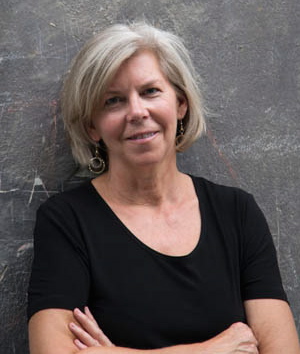Where are they now? Janelle Diller (’75), author and international consultant

1. What is your name, where you are from, and what year did you graduate from GC?
Janelle Diller. I grew up in Kansas, but I’ve lived in Colorado since 1979. I graduated from GC in 1975, but I spent another year at Goshen doing my student teaching and getting an English minor. These days we divide out time between Colorado, a sailboat in Mexico, and a canal boat in Europe.
2. What interested you in becoming a history major?
My dad was an adventure traveler and took our family on some amazing trips, including Latin America in the early 1960s. I have memories of traveling through the Amazon jungle, the Peruvian mountains, and both Brazil and Argentina in the middle of political coups. Those early experiences gave me a love and curiosity about the rest of the world. It also triggered an awareness that the world is far more than the tiny dot on the map where I lived at the moment, which, by the way, was rural Kansas. All that contributed to an appreciation of other places and an awareness of other times. It planted the seeds for my passion for history—even though at the time a history major seemed like a pretty unemployable future.
I think one of the things I loved most about history was that it pushed me to be a more critical thinker. NOTHING happens in a vacuum. Everything is connected. The past is the best predictor of the future. To think that every event starts with a clean slate is not only wrong, it’s dangerous thinking.
At the time, the path for a history major seemed pretty limited. Or at least I had a very limited understanding of what I could do. I thought I could either teach school or go on to grad school to become an attorney or to get a PhD so I could teach or do research.
3. What was your history research topic? What made you select this topic?
My history research topic was about prejudice in Northern Indiana during the years that led up to the Civil War. I spent hours and hours and hours at the Goshen Public Library going through the newspapers from those decades, which were available on microfiche. I loved it. Goshen was 15 miles away from the end of the underground railroad and yet carried an enormous amount of danger for the slaves who managed to get that far. It was my first true experience with original sources. I don’t remember why I chose it, but it probably had to do with what sources were available and what topic might be interesting.
4. What have you done leading up to the work you do today?
I did end up teaching high school for three years. From there I taught college writing and then got a masters in education with a specialty in curriculum and instruction from University of Colorado, Colorado Springs. The combination of a history major, English minor, and masters opened many doors. I spent eight years at Oracle doing organizational readiness for technology transformations, where I used my history major skills on every single project. My degree taught me to determine where to look for information, ask critical questions, gather data, organize it, analyze it, tease out insights, synthesize, and report out. Those skills lend themselves to countless occupations.
5. What do you do now?
For the last eleven years I’ve done leadership training for an international management consulting firm. I work 10-12 weeks a year and am lucky enough to travel the world. Last year I worked in Shanghai, Singapore, Hanoi, Austria, and the US. The participants all have MBAs or PhDs in their fields. I can relate on many levels, but ultimately, because I understand the importance of where to look for information, ask critical questions, gather data, organize it, analyze it, elicit insights, synthesize, and report out, I can speak their language and push them in their thinking. They graduated from the top schools in the world. I graduated from Goshen. But it’s pretty much a level playing field because Goshen taught me to think.
In addition, I write books. I write the Australia, Austria, and Mexico books for Pack-n-Go Girls Adventure books, an award-winning early chapter book series for kids six to nine. I also have two adult novels: The Virus which is an award winning political thriller that seems more relevant every week; and a trilogy set in Kansas during the Depression and WWII. The first book in the series, Never Enough Flamingos came out in October. The second one, Never Enough Sisters, is due out in June. The third, Never Enough Lilacs, will be available in early 2018. All of the books required plenty of research. Most important, though, is that as I wrote, I lived the history. There’s nothing cooler than that for an old history major!
6. In the work you do today, how does your history education influence into what you are doing today?
Every day. First of all, my history classes honed my writing skills. I learned more about writing from Theron Schlabach than from any English professor. So I’m definitely influenced as I write. Even more important, though, my history education has made me a more critical thinker and consequently influences how I see the world.
7. Any words of encouragement to fellow GC history undergrads?
I’ve always felt like my history degree didn’t train me for any specific job, but it trained me for every job in general. You’re going to leave Goshen with incredibly important skills: researching, analyzing, synthesizing, and writing. Emphasize those on your resume, and you’ll rise to the top of the pile.




